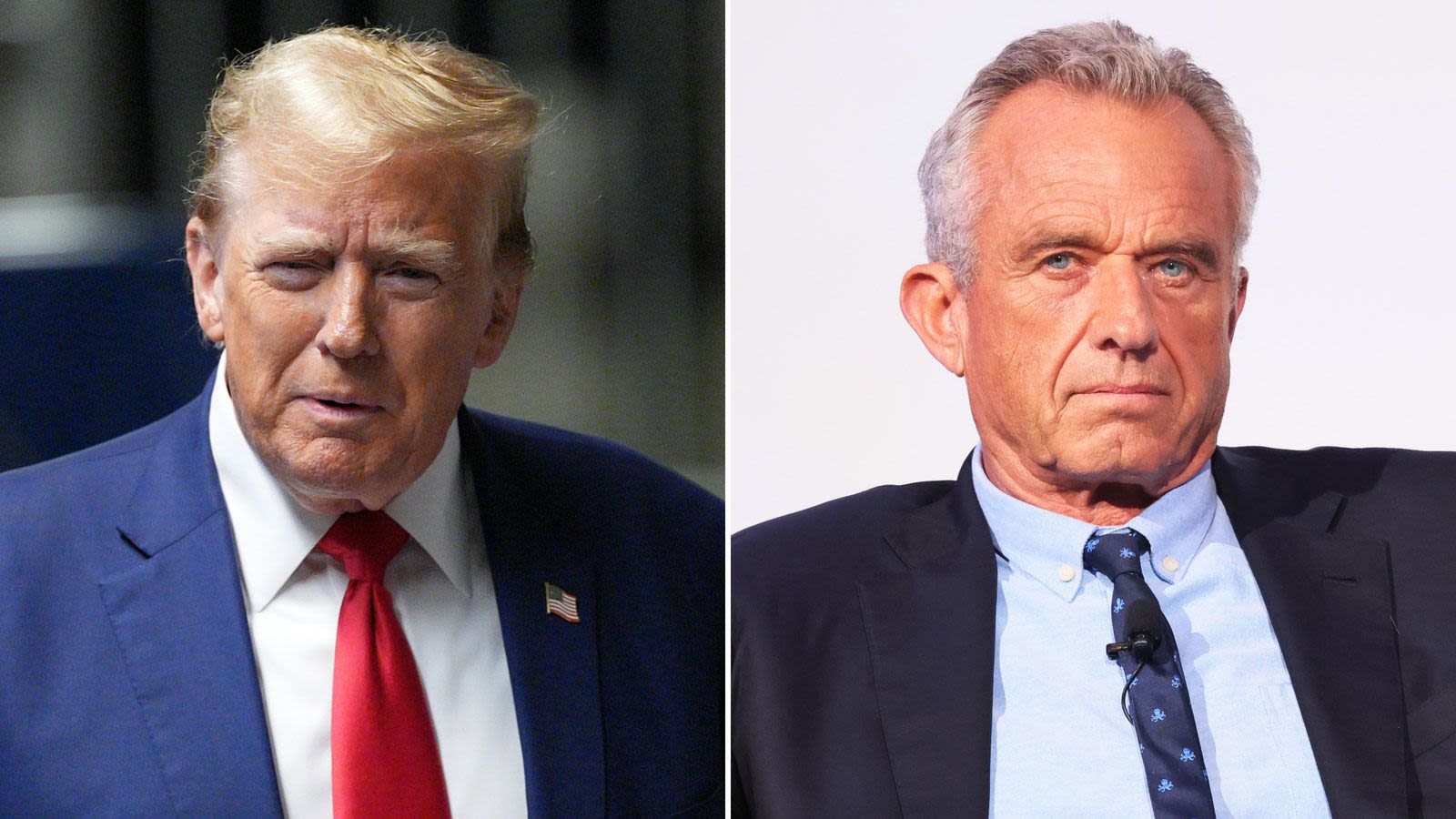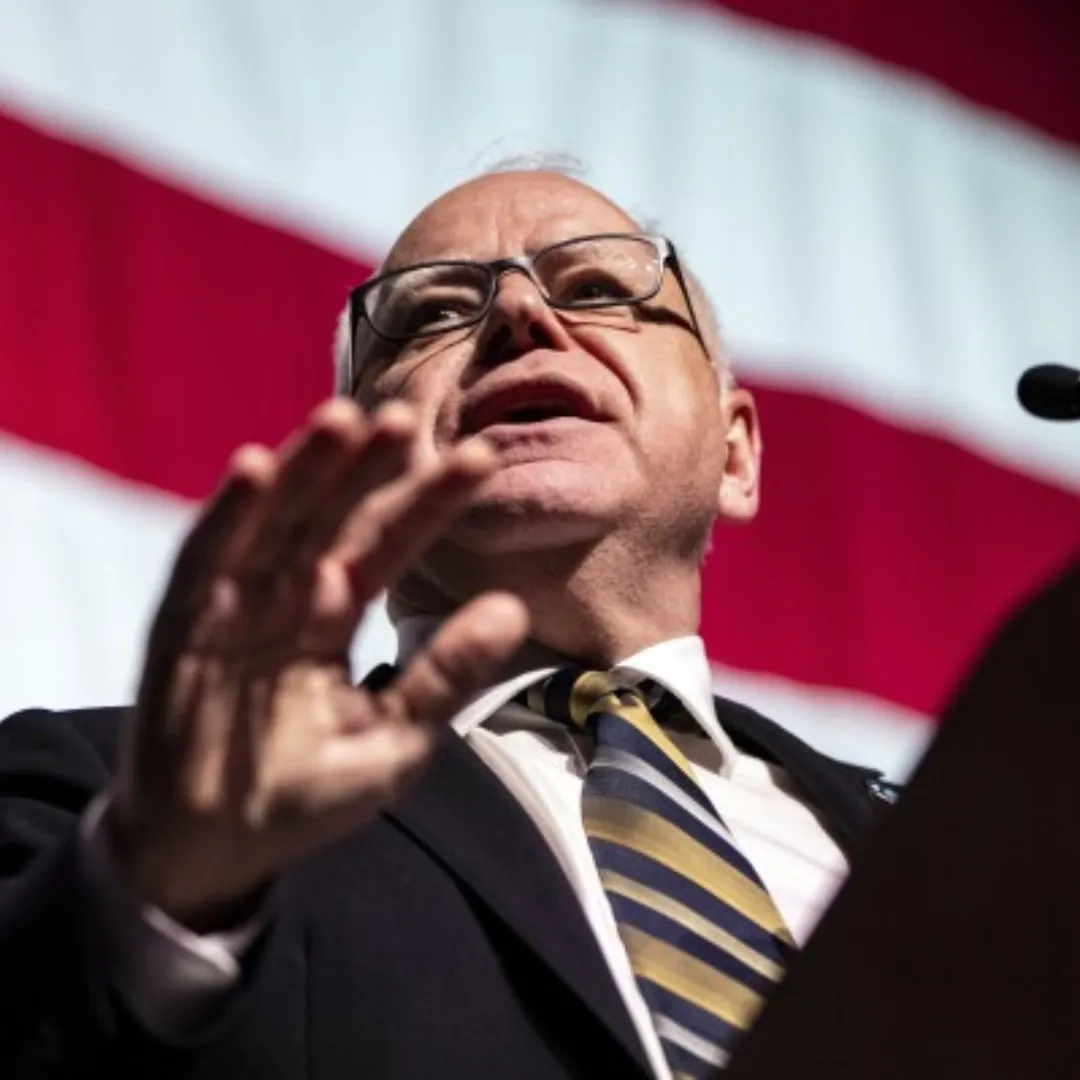
Minnesota’s first lady Gwen Walz delivered a strong public rebuke of Health and Human Services Secretary Robert F. Kennedy Jr. following a controversial statement he made at a press conference on Wednesday regarding autism.
Kennedy, a longtime public figure and environmental advocate who now holds one of the most influential health positions in the federal government, sparked widespread criticism with his comments on autism and its effects on families and society.
Speaking during a press briefing focused on recent data from the Centers for Disease Control and Prevention concerning the rising prevalence of autism diagnoses in the United States, Kennedy described the condition in a way that many have found deeply offensive and inaccurate.
"Autism destroys families," Kennedy said during his prepared remarks. "More importantly, it destroys our greatest resource, which is our children. These are children who should not be, who should not be suffering like this. These are kids who, many of them were fully functional, and regressed because of some environmental exposure into autism when they’re 2 years old."
Kennedy continued by painting a bleak picture of life for children on the autism spectrum. "These are kids who will never pay taxes, they’ll never hold a job, they’ll never play baseball, they’ll never write a poem, they’ll never go out on a date. Many of them will never use a toilet unassisted. And we have to recognize we are doing this to our children."
Within hours, the comments were circulating across social media, where disability advocates, public figures, and parents of children with autism began expressing outrage. Among the most prominent voices was Minnesota’s first lady, Gwen Walz, who took to the platform X to respond with a pointed rebuttal.
"This is deeply upsetting, especially coming from our nation’s highest-ranking health official," Walz wrote. "Individuals with autism are family, neighbors, students, and coworkers and they contribute more to this nation than this man ever will."
Gwen Walz and her husband, Minnesota Governor Tim Walz, have been open about their family’s experiences. One of their two children, Gus Walz, lives with a nonverbal learning disorder as well as attention-deficit/hyperactivity disorder (ADHD).
The couple has made inclusion and advocacy for neurodiverse individuals a core element of their public service.

Gwen Walz’s public defense of neurodiverse individuals follows a broader pattern of her championing issues related to accessibility, education, and social understanding.
Her statement not only challenged Kennedy’s perspective but also echoed the sentiments of many families who have long fought for greater representation and dignity for those living with autism and other developmental differences.
Shortly after Walz posted her response, more reactions came pouring in, including a statement from Representative Maxwell Frost of Florida. The freshman Democrat also used X to speak out against Kennedy’s remarks, calling them both harmful and untrue.
"This is disrespectful and a flat out lie that further stigmatizes autism," Frost wrote. "It’s not a virus or a disease – it’s a neurological condition with a wide spectrum. Many Americans with autism work, pay taxes, and are living happy and healthy lives."
Kennedy’s office responded the following day in an effort to clarify his remarks. In an email shared with several media outlets, a spokesperson for the Department of Health and Human Services said Kennedy "remains committed to working toward a society where people with autism have access to meaningful opportunities, appropriate supports, and the full respect and recognition they deserve."
The spokesperson added that Kennedy’s comments were meant to call attention to the environmental factors that some researchers believe may be contributing to the increasing rates of autism diagnoses, rather than to demean or stigmatize those on the autism spectrum.
"His statements emphasized the need for increased research into environmental factors contributing to the rise in autism diagnoses, not to stigmatize individuals with autism or their families," the spokesperson said.
Despite the attempt at damage control, the original comments continued to spread online, with many autism advocates, medical professionals, and public figures calling for an apology or even Kennedy’s resignation.
Autism advocates emphasized that the secretary’s description of children with autism was not only inaccurate, but deeply damaging to public understanding. Many highlighted the diversity of experiences within the autism spectrum, noting that while some individuals may require significant support, others lead independent lives, hold jobs, maintain relationships, and contribute fully to society.

"There is no one single story when it comes to autism," said one disability rights organizer in a video response that gained traction. "Painting children as doomed, as a burden, or as incapable of love and productivity is not only wrong—it’s cruel."
In interviews across multiple platforms, parents of children with autism shared stories about their children’s talents, interests, and progress. Some shared photos of their kids playing sports, writing poems, attending school dances, or working part-time jobs.
Others pointed out how Kennedy’s remarks ignored the immense effort and success that often comes with early interventions, inclusive education, and community support.
"To hear a person in such a powerful position say these things feels like a slap in the face," said one parent. "We fight every day to make sure our kids are seen for who they are and what they can do. He just erased all of that in a single statement."
The controversy has added pressure to an already tense political climate. Kennedy, known for his skepticism of vaccine mandates and environmental health concerns, has often faced criticism from both sides of the political aisle.
His position as Secretary of Health and Human Services was itself controversial upon his appointment, and incidents like this are likely to draw more scrutiny.
Gwen Walz’s decision to weigh in publicly added a layer of emotional and moral weight to the backlash. As a public figure with direct experience parenting a neurodiverse child, her words resonated deeply with many families who feel marginalized or overlooked in broader policy discussions.
This is not the first time the Walz family has been the subject of national attention in relation to their son Gus. During the 2024 presidential campaign, Gus was mocked in a social media post by conservative commentator Ann Coulter, who criticized his appearance and demeanor after an emotional speech he gave during the Democratic National Convention.
The post drew widespread condemnation and was later deleted, but it underscored the vulnerability of families who choose to speak publicly about their personal lives.
For Gwen Walz, the Kennedy remarks appeared to hit a similar nerve.

"This isn’t about politics," one supporter commented in response to her post. "It’s about humanity and respect. And she nailed it."
The firestorm also reignited broader conversations about how public officials talk about disability and how narratives around autism are shaped in the media and in political discourse.
Many advocates stress the need for education, awareness, and sensitivity when discussing neurodiversity. They argue that outdated stereotypes and misinformation do real harm—not just in policy, but in how people are treated in schools, workplaces, and communities.
"We are constantly pushing back against this idea that autistic people are broken or less than," said a school psychologist in Minnesota who works with children across the spectrum. "Comments like Kennedy’s reinforce stigma, create fear, and undermine decades of work in education and mental health."
Some lawmakers have already begun calling for a review of the department’s communication protocols and are asking whether Kennedy should issue a formal correction. Others have expressed concern that his remarks could harm efforts to build trust between public health institutions and families of children with disabilities.
While Kennedy has not issued a direct apology as of Friday afternoon, his office has suggested that he will clarify his position in a future public appearance. Until then, the backlash continues to build.
For families like the Walzes, the moment served as a reminder of how important representation and advocacy remain in the fight for dignity, respect, and understanding.
Gwen Walz’s decision to speak out was not just a defense of her son—it was a broader call to recognize the value and contributions of all individuals with autism and to challenge the kinds of language and assumptions that can strip away their humanity.

As public debate continues, many are watching to see whether Kennedy will walk back his comments or whether the administration will take steps to address the concerns raised by the autism community. In the meantime, voices like Gwen Walz’s are helping to reframe the conversation.
"These children are not lost. They are not burdens. They are not broken," one advocate wrote. "They are people, and they deserve better than what they heard this week."

-1746253335-q80.webp)

